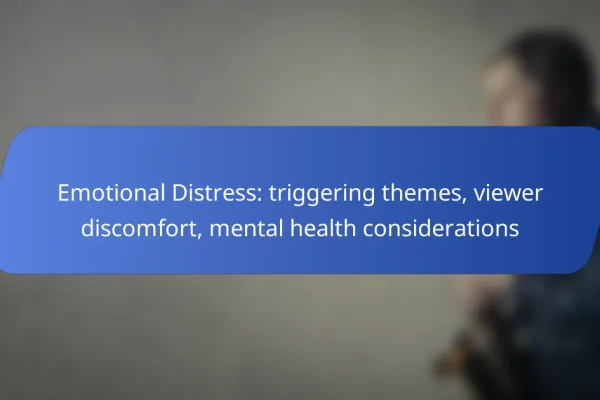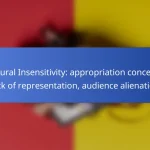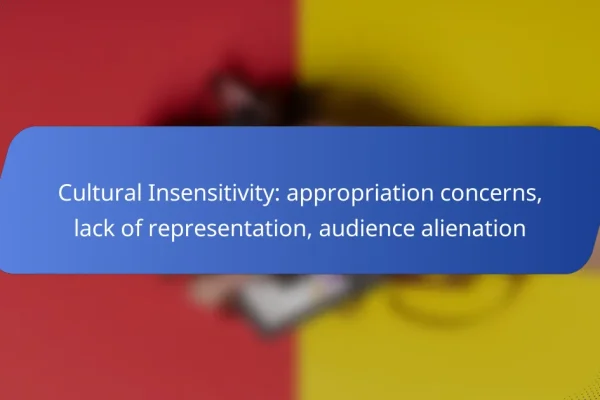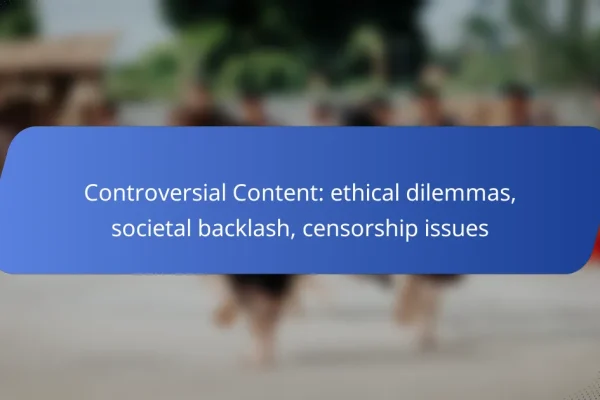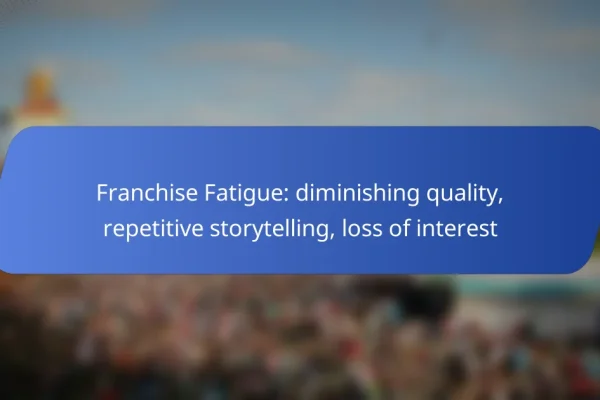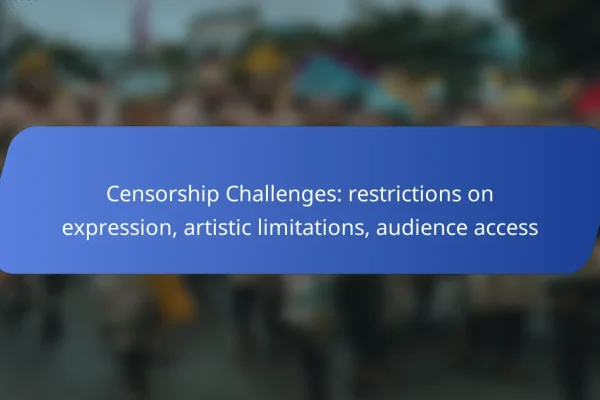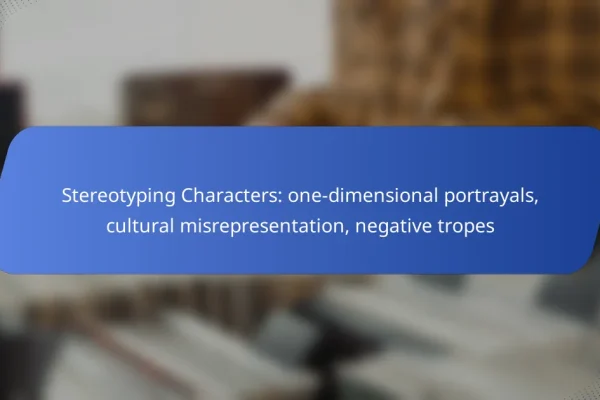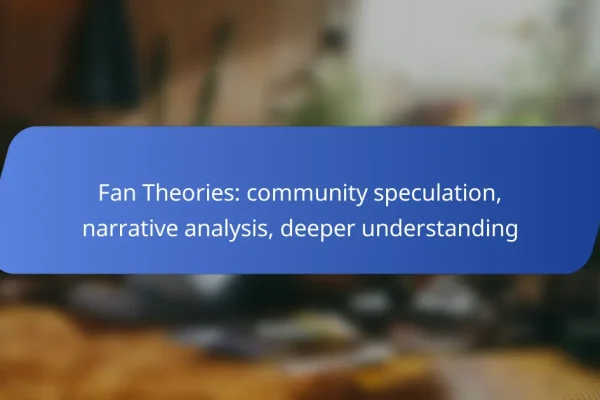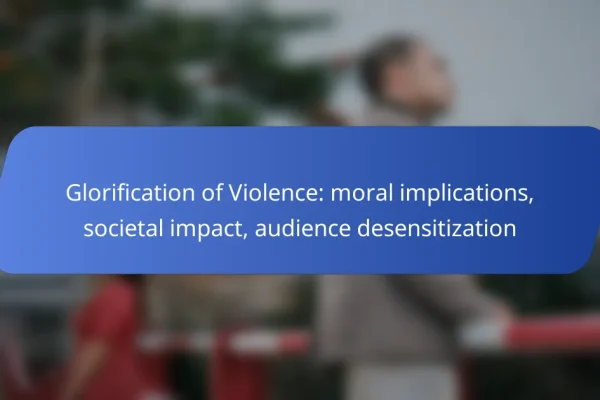What are the risks of revenge films in Canada?
Revenge films in Canada pose various risks, including the potential to glorify violence and negatively affect viewers’ mental health. These films can influence societal attitudes towards aggression and conflict resolution, making it crucial to understand their implications.
Promotion of violence
Revenge films often depict violent acts as justified and heroic, which can lead to a normalization of aggressive behavior. This portrayal may encourage viewers to see violence as an acceptable means of resolving conflicts, potentially influencing real-life actions.
In Canada, where media regulations exist to limit the exposure of graphic content to minors, the impact of revenge films can still seep into public consciousness. The glorification of revenge can overshadow messages promoting peaceful conflict resolution.
Desensitization to aggression
Repeated exposure to violent scenes in revenge films can desensitize viewers, making them less sensitive to real-world violence. This desensitization can diminish emotional responses to aggression, leading to a lack of empathy for victims of violence.
Research suggests that individuals who frequently watch violent media may become more tolerant of aggressive behavior, which can alter societal norms around violence. This shift can be particularly concerning in a diverse society like Canada, where community cohesion is essential.
Impact on mental health
Viewing revenge films can have adverse effects on mental health, particularly for individuals already struggling with anxiety or aggression. The intense emotions portrayed in these films can trigger negative feelings or reinforce harmful thoughts.
For some viewers, the themes of vengeance and retribution can lead to increased feelings of anger or frustration. It is important for individuals to be mindful of their media consumption and consider how these films may affect their emotional well-being.
How do revenge films affect societal attitudes?
Revenge films can significantly influence societal attitudes by shaping perceptions of justice and morality. They often glorify retribution, leading audiences to view vigilantism as an acceptable response to wrongdoing.
Normalization of vigilantism
The portrayal of vigilante justice in revenge films can normalize the idea that taking the law into one’s own hands is justified. This can lead to a societal shift where individuals may feel empowered to act outside legal frameworks when they perceive injustice.
For example, characters who seek revenge often receive positive outcomes, reinforcing the belief that such actions are not only acceptable but admirable. This can create a dangerous precedent, where real-life individuals might mimic these behaviors in their communities.
Influence on youth behavior
Younger audiences are particularly susceptible to the messages conveyed in revenge films. Exposure to these narratives can shape their understanding of conflict resolution, potentially leading them to embrace violent or retaliatory responses in real-life situations.
Research suggests that media consumption, including films, can impact behavior and attitudes among youth. Parents and educators should be aware of this influence and encourage critical discussions about the themes presented in these films to mitigate negative effects.
What psychological effects do revenge films have?
Revenge films can lead to significant psychological effects, including heightened aggression and reduced empathy. These films often glorify violent retribution, which can influence viewers’ attitudes and behaviors towards conflict resolution.
Increased aggression
Viewing revenge films can increase aggressive thoughts and feelings in individuals. Research suggests that repeated exposure to violent scenarios may desensitize viewers, making them more likely to accept aggression as a viable response to provocation.
For example, individuals who frequently watch such films may find themselves more irritable or quick to anger in real-life situations. This can manifest in interpersonal conflicts or even in aggressive driving behaviors.
Empathy reduction
Revenge films often portray characters in a way that diminishes empathy for victims of violence. By focusing on the perpetrator’s perspective, these films can lead viewers to overlook the suffering of others, fostering a lack of compassion.
As a result, individuals may become less sensitive to the emotional pain of others, impacting their relationships and social interactions. This reduction in empathy can contribute to a more hostile environment in both personal and community settings.
How can filmmakers mitigate risks in revenge narratives?
Filmmakers can mitigate risks in revenge narratives by carefully crafting stories that emphasize moral complexity and the repercussions of violent actions. By focusing on these elements, creators can foster a more thoughtful engagement with the themes of revenge, potentially reducing negative societal impacts.
Incorporating moral dilemmas
Incorporating moral dilemmas into revenge films can enhance the narrative depth and provoke critical thinking among viewers. By presenting characters who face tough choices, filmmakers can illustrate the complexities of vengeance and its ethical implications.
For example, a protagonist might struggle with the decision to seek revenge against an antagonist who has caused them harm, weighing the desire for justice against the potential for further violence. This approach encourages audiences to reflect on their own values and the consequences of their choices.
Focusing on consequences
Focusing on the consequences of revenge can help filmmakers convey the often destructive nature of such actions. Highlighting the aftermath of vengeance can serve as a cautionary tale, showing that revenge can lead to a cycle of violence and suffering.
For instance, a film could depict how a character’s quest for revenge not only harms their target but also negatively impacts their relationships and mental health. By illustrating these outcomes, filmmakers can foster a more nuanced understanding of revenge and its far-reaching effects.
What are the legal implications of revenge films?
Revenge films can lead to various legal implications, particularly concerning defamation, copyright, and potential lawsuits. Filmmakers must navigate these issues carefully to avoid legal repercussions that could arise from the content they choose to depict.
Potential for lawsuits
The potential for lawsuits in revenge films is significant, especially if the film portrays real individuals or events. Filmmakers may face defamation claims if the content is perceived as damaging to someone’s reputation. It is essential to consider the portrayal of characters and events to mitigate the risk of legal action.
Additionally, filmmakers should be aware of the laws surrounding emotional distress claims. If a film’s depiction causes severe emotional harm to individuals depicted, they may pursue legal action. Consulting with legal experts during the scriptwriting process can help identify and address these risks.
Copyright issues
Copyright issues can arise in revenge films if the content includes protected material without permission. This includes music, scripts, or even visual elements that are not original. Filmmakers must ensure that they have the appropriate licenses or permissions to use any copyrighted material to avoid infringement claims.
Moreover, filmmakers should consider the concept of fair use, which allows limited use of copyrighted material under specific circumstances. However, relying on fair use can be risky and subjective, so it is advisable to seek legal counsel to navigate these complexities effectively.
What are alternative themes to explore in revenge films?
Alternative themes in revenge films can include redemption and forgiveness, which offer deeper emotional narratives and character development. These themes shift the focus from vengeance to healing, allowing for a more nuanced exploration of human experiences.
Redemption stories
Redemption stories focus on characters seeking to atone for past mistakes or wrongdoings. These narratives often involve a journey of self-discovery, where the protagonist confronts their flaws and strives to make amends. For instance, a character who has harmed others may work to help those they wronged, ultimately finding peace and forgiveness within themselves.
In crafting redemption arcs, consider the character’s motivations and the impact of their actions on others. This can create a compelling narrative that resonates with audiences, as they witness the struggle for personal growth and the desire to be better.
Forgiveness narratives
Forgiveness narratives center on the process of letting go of anger and resentment, often highlighting the emotional journey of both the wrongdoer and the victim. These stories can illustrate how forgiveness can lead to healing and reconciliation, transforming relationships and personal well-being. A common example is a character who learns to forgive an offender, leading to mutual understanding and growth.
When developing forgiveness themes, emphasize the complexities of emotional healing. Showcase the challenges faced by characters as they navigate their feelings, and consider including moments of vulnerability that allow audiences to connect with their struggles. This approach can foster empathy and encourage viewers to reflect on their own experiences with forgiveness.
What trends are emerging in the portrayal of revenge in cinema?
Recent trends in cinema show a shift towards more complex and nuanced portrayals of revenge, moving beyond simple narratives of vengeance. Filmmakers are increasingly exploring psychological depth, character arcs, and societal implications, reflecting a broader understanding of the motivations behind revenge.
Shift towards psychological thrillers
The portrayal of revenge is increasingly intertwined with psychological thrillers, emphasizing the mental and emotional states of characters. These films often delve into the motivations and consequences of revenge, showcasing how it can lead to obsession and moral ambiguity.
For instance, movies like “Oldboy” and “Midsommar” illustrate how revenge can warp a person’s psyche, leading to unexpected and often tragic outcomes. This trend encourages viewers to reflect on the psychological toll of seeking vengeance.
Focus on character development
Modern revenge films prioritize character development, allowing audiences to connect with the protagonists on a deeper level. By providing backstories and emotional depth, filmmakers create more relatable characters whose actions are driven by complex motivations.
Films such as “The Count of Monte Cristo” and “Kill Bill” highlight the journey of the characters, making their quest for revenge not just a plot device but a means of personal transformation. This focus on character allows for a richer narrative experience.
Exploration of systemic issues
Another emerging trend is the exploration of systemic issues that contribute to the desire for revenge. Many contemporary films address social injustices, inequality, and trauma, framing revenge within a larger societal context.
For example, “I Spit on Your Grave” and “The Nightingale” tackle themes of gender violence and oppression, illustrating how personal vendettas can stem from broader societal failures. This approach encourages discussions about justice and morality in the face of systemic wrongs.
